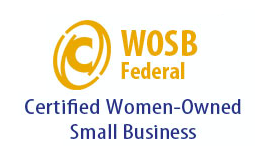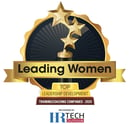
In general, it is a mentor’s job to help her protégé position herself to achieve career success and the protégé’s job to work with her mentor to achieve career goals. When it comes to career success, our research indicates that men and women speak differently about mentors and their roles. Understanding this difference will help engage managers and executives as better mentors (and women as stronger protégés).
What we've found is that when discussing the impact of their mentors, successful men talk about "PIE Mentoring™” and women talk about "CAKE Mentoring™”. To illustrate, let me first ask you a question. If you were to review a posted job in which you were interested, what percent of the listed job requirements would you feel you had to meet before you’d go ahead and apply?
If you’re like men in a recent study at Hewlett Packard, you’d think you only need to meet 60% of the job requirements. BUT if you are like most women, you’d think you have to meet 100%.
What this has to do with mentoring is this – for many men, confidence and encouragement are NOT part of the recipe for career success, but for many women they are. This leads to our acronym – C.A.K.E.
Success as a Piece of C.A.K.E.
CAKE Mentoring begins with C for Confidence and ends with E for Encouragement. In between are A for Aptitude & Attitude and K intentionally misspelled for Konnection with Resources.
Confidence
Woman after woman will speak of mentors who gave her the confidence to do something that she hadn’t thought about at all or didn’t think she could do. And many women speak about this as part of their role as a mentor. Take for example Madeleine Albright who wrote in her autobiography (Madam Secretary) "People sometimes ask me how I want to be remembered… Perhaps some will…say that I helped teach a generation of older women how to stand tall and young women not to be afraid to interrupt.”
As you reflect on your mentor(s) and your protégé(s), I’m sure you will think of people who have given you confidence or courage. Women cite these most frequently as how they’ve benefited from a mentor.
Think about this, how did your mentor help you develop your confidence? How are you passing this on to a protégé?
Aptitude and Attitude
Aptitude relates to highlighting a protégé's skills or pointing out her areas for development. A mentor with a broader perspective often sees latent talent or skills that could be developed. Sharing these with the protégé can help her further refine her career path.
We include Attitude because of the many women who talk about their mentor as a confidante. They speak of the value of having a confiding more experienced advisor for attitude adjustments as they discuss the challenges of being a woman at work, life balance issues or brainstorm solutions to on-the-job issues. Beware of spending too much time on this - remember mentoring is about future career success.
Think about this, what percentage of your mentor/protégé time is spent on attitude/ aptitude discussions?
Konnection (sic) to Resources
This refers to having someone put you in touch with the right people, right professional development opportunities, right internal resources for success, etc. Examples of konnection to resources include:
- Recommendations on courses.
- Attending or speaking at a conference.
- Assistance attaining an important credential or degree.
- Advice on connecting with the right people to access the resources (money, staff, knowledge, etc) required for success on a current project/job.
- Tip on a job opening.
- Referral to a hiring manager.
In your mentor/protégé relationships, to what extent is resource connection a dynamic?
Encouragement
In your mentor/protégé relationships, to what extent is encouragement given or needed? Because women continue to blaze trails in so many professions, companies and industries encouragement remains an important part of career success. We can see how important it is even for those who’ve attained the highest levels. Again, in Madam Secretary, Madeleine Albright writes, "To get started I needed the proper credentials and the backing of someone with enough faith to help me, not out of charity but because he (that’s how it was) would recognize my value.” (e.a.)
Carol Mullins, a CIO magazine 2008 One to Watch says, my mentors, "gave me the nudge that I sometimes needed to take a step I wasn’t sure I could take.” (e.a.) And she's like the vast majority of mentored women we've worked with since 2003 who report that they have received CAKE Mentoring™.
A Slice of Success: P.I.E.
If women get nudged, men get groomed. Understanding PIE Mentoring™ will illustrate how this happens. As best I can find, the acronym seems to have arisen (pun intended) and originally coined by John Hammit a Pillsbury executive. And men continue to talk about the PIE formula for career success, but in ways different from how they are used by Leading Women.
Obviously if you are confident enough to apply for a job if you meet only 60% of the criteria, you wouldn’t expect confidence or encouragement to be part of the recipe for success. And it isn’t. PIE stands for Performance, Image and Exposure.
You might be thinking, DUH!!, but let me suggest that what those words conjure up in your mind might be different from what they conjure in the minds of men who talk about them.
Performance
Most women think (and as used by Hammit) performance means doing the job – and doing it perfectly. Perfection doesn’t cross the mind of most men. Instead, men talk about hitting the outcomes – and knowing why it’s important to hit them. They do a good enough job to get the results. This is a subtle, but very important distinction that I’ll illustrate in a minute.
But when we talk about PIE Mentoring, we mean mentoring relationships that help you understand the Performance of the Business - the key outcomes executives track and how they differ and are similar across business units, the actions executives take to keep key outcomes in balance, the levers they pull to move outcome measures in the right direction, and how you and your team(s)' activities contribute to those metrics.
As you reflect on your mentor(s) and your protégé(s), ask yourself who has enabled you to understand key outcomes, which outcomes are most important to be driving and how this relates to you?
Image
When you hear the word image, you might automatically think of the modern day equivalent of dress for success - right clothes, shoes, accessories and grooming. What successful men think of is cultivating a leaderly presence. They talk about mentors who helped them stand outside themselves, observe their behaviors and reflect on whether they are behaving as leaders – in other words, the image of a leader they project.
This has very little to do with your attire. You can be impeccably turned out in a "dress for success” way, but act like a subordinate OR you can be dressed very casually (think Steve Jobs or Bill Gates) and act like a leader. Image for this discussion has much to do with presence (non-verbal carriage), language, how one wields the power of her position. AND image of a leader means so much more - especially as it relates to your ability to comfortably draw and hold attention while delivering a business savvy message to a business savvy audience.
As you reflect on your mentor(s) and your protégé(s), ask yourself what types of image advice have your received or given and how have you been groomed to Speak the Language of Power™ in order to deliver business savvy messages?
Exposure
Lastly, when you hear the word exposure, I’m afraid of what you might be thinking! But what men talk about are two things. Getting the right job assignments to position you to move up. AND getting exposed to how work is done at higher levels.
An excellent illustration of this is the story that one CEO tells about his early career. The CEO of the hospital where he worked took him under his wing. Among the mentoring experiences he provided was the opportunity to attend executive and board meetings. After each meeting they’d debrief it discussing questions like:
- Who in the room had the power?
- Why was this a topic for this meeting/level? (This is an outcomes-oriented question.)
- What rationale carried the most weight in making the decision?
- How will the decision affect the hospital? (This is an outcomes-oriented question.)
Another example is shared by Lisa Bergeron, President of Leading Women of Southeastern New England. While a college intern, her son was invited by his boss to attend a conference that only a few senior professionals attend. Adding this experience to his resume helped him stand out from others in the job search process.
As you reflect on your mentor/protégé relationships ask yourself what advice on job assignments have you received/given AND what windows into higher level thinking and decision making have you opened?
CAKE and PIE Served Up
Each of us wants to do an exceptional job as a mentor or as a protégé. At Leading Women we acknowledge this drive when we talk about "master” mentors and "perfect” protégés. To continuously strive to do your best as a mentor or as a protégé, use the following tips.
Top 3 Tips for being a "Master” Mentor
- Be generous with PIE Mentoring and judicious about CAKE Mentoring
- Keep the focus on career growth and preparation to contribute to the business at higher levels and in other functions/parts of the business
- As she earns your confidence as a partner in the business, take action to sponsor her development and career growth
Top 3 Tips for being a "Perfect” Protégé
- Minimize the A for Attitude in CAKE (no whining)
- Seek out PIE Mentoring - if your mentor doesn’t offer to help in these areas, ask for it.
- Take sightings down your path. Don’t expect your mentor to blaze your trail.
We've applied these concepts to power up the mentoring programs at many organizations.







